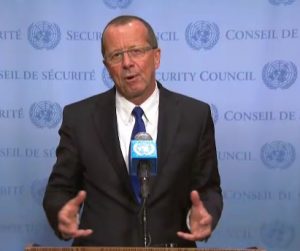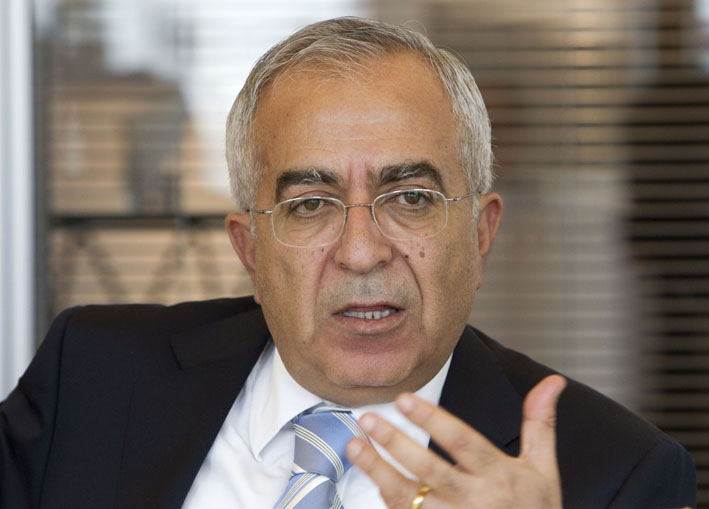By Jamie Prentis.

Tunis, 9 February 2017:
The UN Special envoy to Libya, Martin Kobler, is to be replaced by former Palestinian Prime Minister Salam Fayyad, in a decision by the new UN Secretary-General Antonio Guterres.
So far there has been no official confirmation, although a leaked letter from Guterres to the UN Security Council dated yesterday announcing the appointment has been circulating on social media. In it Guterres thanks Kobler for his service.
For their part, however, highly reliable sources have confirmed the new appointment to the Libya Herald but say that the changeover will not take place immediately; Kobler will remain in post for a short while longer.
In an apparent goodbye message, Kobler himself tweeted: “You have all my admiration. You laying the ground so people can return home and live in peace and open the door for prosperous generation”.
Responding to the move, the former Libyan representative to the UN, Ibrahim Dabbashi, has criticised it.
“Nominating a new SRSG in Libya without consulting the constitutional authorities is a violation of Libya’s sovereignty,” he tweeted. “The HOR [House of Representatives] should take action”, he said.
HoR member Tariq Geroushi also attacked the appointment as violation of Libyan law, similarly rejecting the notion that the appointment of the Secretary-General’s representative to Libya should the Secretary-General’s own choice.
Kobler evidently intends to work until his last day in office. Earlier this week, he criticised EU proposals to send migrants back to Libya and suggested such a decision would be a violation of international standards and the Geneva Convention.
“You can’t send them (migrants) back to camps where they will go hungry, be tortured and raped,” he said.
In his final report to the Council yesterday, Kobler said: “The citizens of Libya deserve security and an end to the rampant crime and lawlessness.”
While at times optimistic about Libya’s economic situation, he insisted corruption remained, health services were inadequate and poor financial management continued.
Kobler was a personal appointment by the former UN Secretary-General and was generally viewed as lapsing with his departure.
The new special envoy, US-educated Salam Fayyad, was Palestinian finance minister from 2002 to 2005 and Palestinian prime minister from 2007 to 2013.
His background is in finance, having previously worked for both the World Bank and the International Monetary Fund, and is regarded as having been a successful finance minister. Seen as both a conciliator and a pragmatist, he will, however, have his work cut out for him in trying to implement a Libyan Political Agreement that is widely seen as broken and unimplementable.
It remains to been seen, though, exactly what his remit from Guterres will be.








